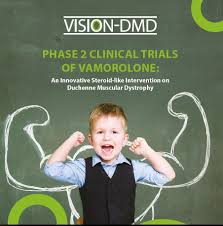 The VISION-DMD published a white paper on how to return individual clinical trial results back to patients. It focuses on addressing the ethical and technical challenges, using the vamorolone clinical trial experience.
The VISION-DMD published a white paper on how to return individual clinical trial results back to patients. It focuses on addressing the ethical and technical challenges, using the vamorolone clinical trial experience.
The VISION-DMD is a project aimed to advance and accelerate the clinical development of the orphan drug vamorolone (also known as VBP15) for the treatment of Duchenne Muscular Dystrophy (DMD) through a series of Phase 2 clinical trials being conducted in Europe, the US, Canada, Israel and Australia, leading to drug registration. Availability of vamorolone may deliver a significant advance in the standard of care for all patients with DMD regardless of mutation.
The paper outlines the implications of returning clinical trial data in a form that is meaningful to the participant and outlines the ethical and pragmatic challenges. It reports on a pilot framework for returning trial data and aggregate data that allows a participant to compare their individual results with their dose group and overall trial.
“Patients participate in a clinical trial to generate new knowledge to advance drug and technology development. During a clinical trial, data on individuals is collected to generate aggregated information to support the study objectives. Often, this individual patient data will not be returned to the participants, even when this is requested.” said Dr. Laurie Conklin, Medical and Regulatory Director, ReveraGen BioPharma.
The white paper is available here.
